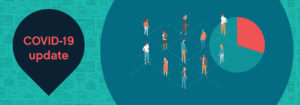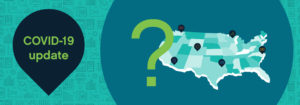
By Scott Hampel
Many challenges face healthcare’s underserved. There are issues with food, housing, reliable transportation, steady employment and more.
Each contributes to and is one element of social determinants of health (SDH). In communities around the world, public and private organizations are taking steps to address SDH-related issues and challenges that negatively impact healthcare.
For the healthcare industry to find its way to new and innovative SDH programs and to identify those who may benefit, they must be found. While some organizations use referrals following face-to-face meetings with prospective program members, predictive analytics can be utilized to identify many potential enrollees quickly and efficiently, as well.
The data could come from a variety of healthcare or socioeconomic sources
“Analytical capabilities in healthcare can be used to identify patterns of care and discover associations from massive healthcare records, thus providing a broader view for evidence-based clinical practice,” according to an article published in Technological Forecasting & Social Change. “Healthcare analytical systems provide solutions that fill a growing need and allow healthcare organizations to parallel process large data volumes, manipulate real-time, or near real time data, and capture all patients’ visual data or medical records. In doing so, this analysis can identify previously unnoticed patterns in patients….”
Predictive analytics uses a large dataset and an algorithm to, in this instance, identify people who may benefit from help. The data could come from a variety of healthcare or socioeconomic sources, including healthcare facilities and community organizations, and might contain information about:
- Wellness
- Chronic conditions
- Food
- Transportation
- Billing codes
The nonprofit eHealth Initiative identified data as crucial to understanding SDOH. “The importance of SDOH data in contributing to the complete picture of individuals and communities cannot be underestimated,” according to the organization.
An issue, however, is the slow adoption of predictive analytics in the healthcare industry. “(R)ecent developments in data analytics also suggest barriers to change that might be more substantial in the health care field than in other parts of the economy,” according to an article published by Brookings. “Despite the immense promise of health analytics, the industry lags behind other major sectors in taking advantage of cutting-edge tools.”
Get our take on industry trends
Avoid COVID-19 modeling pitfalls by eliminating bias, using good data
COVID-19 models are being used every day to predict the course and short- and long-term impacts of the pandemic. And we’ll be using these COVID-19 models for months to come.
Read on...Population Health Amid the Coronavirus Outbreak
In speaking with many colleagues throughout the provider and payer healthcare community, I’ve found an overwhelming sense of helplessness to the outbreak’s onslaught. This is exacerbated by the constant evolution of reported underlying medical conditions that indicate a higher risk of hospitalization or mortality for a coronavirus patient.
Read on...COVID-19 and the Financial Storm Ahead for Providers
Across the country, healthcare organizations are seeing 40%-80% declines in monthly charges with some of the most profitable services lines only seeing 20% of their normal monthly volumes during the pandemic.
Read on...3 Steps Any Healthcare Organization Can Take to Improve Enterprise Analytics
By Kristin Weir When it comes down to the most basic purpose of why organizations use analytics, it’s simple: they…
Read on...


